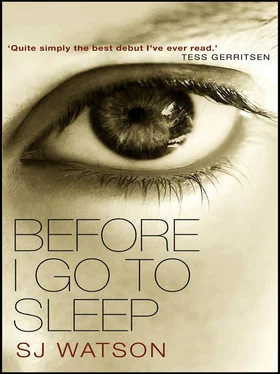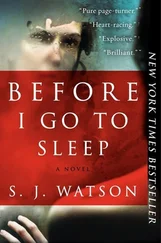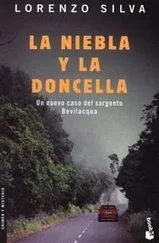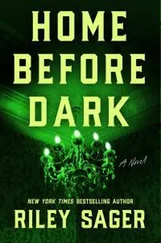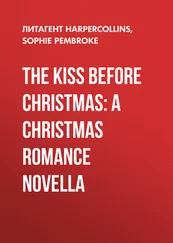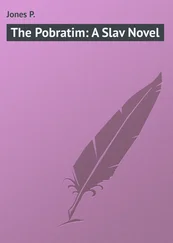S. Watson - Before I Go to Sleep - A Novel
Здесь есть возможность читать онлайн «S. Watson - Before I Go to Sleep - A Novel» весь текст электронной книги совершенно бесплатно (целиком полную версию без сокращений). В некоторых случаях можно слушать аудио, скачать через торрент в формате fb2 и присутствует краткое содержание. Год выпуска: 2011, Жанр: Триллер, на английском языке. Описание произведения, (предисловие) а так же отзывы посетителей доступны на портале библиотеки ЛибКат.
- Название:Before I Go to Sleep: A Novel
- Автор:
- Жанр:
- Год:2011
- ISBN:нет данных
- Рейтинг книги:3 / 5. Голосов: 1
-
Избранное:Добавить в избранное
- Отзывы:
-
Ваша оценка:
- 60
- 1
- 2
- 3
- 4
- 5
Before I Go to Sleep: A Novel: краткое содержание, описание и аннотация
Предлагаем к чтению аннотацию, описание, краткое содержание или предисловие (зависит от того, что написал сам автор книги «Before I Go to Sleep: A Novel»). Если вы не нашли необходимую информацию о книге — напишите в комментариях, мы постараемся отыскать её.
Before I Go to Sleep: A Novel — читать онлайн бесплатно полную книгу (весь текст) целиком
Ниже представлен текст книги, разбитый по страницам. Система сохранения места последней прочитанной страницы, позволяет с удобством читать онлайн бесплатно книгу «Before I Go to Sleep: A Novel», без необходимости каждый раз заново искать на чём Вы остановились. Поставьте закладку, и сможете в любой момент перейти на страницу, на которой закончили чтение.
Интервал:
Закладка:
Dr Nash looked down to scratch the top of his head. Through his hair I could see his scalp, more obvious in a circle at the crown. He won’t have noticed that yet, I thought, but one day he will. He will see a photograph of himself taken from behind, or surprise himself in a changing room, or his hairdresser will make a comment, or his girlfriend. Age catches us all out, I thought as he looked up. In differing ways.
‘Oh,’ he said, with a cheeriness that sounded forced. ‘I brought you something. A gift. Well, not really a gift, just something you might like to have.’ He reached down and retrieved his briefcase from the floor. ‘You’ve probably already got a copy,’ he said, opening it. He took out a package. ‘Here you go.’
I knew what it was even as I took it. What else could it be? It felt heavy in my hand. He had wrapped it in a padded envelope, sealed it with tape. My name was written in heavy black marker pen. Christine . ‘It’s your novel,’ he said. ‘The one you wrote.’
I didn’t know what to feel. Evidence, I thought. Proof that what I had written was true, should I need it tomorrow.
Inside the envelope was a single copy of a book. I took it out. It was a paperback, not new. There was a coffee ring on the front and the edges of the pages were yellowed with age. I wondered if Dr Nash had given me his own copy, whether it was even still in print. As I held it I saw myself again as I had the other day; younger, much younger, reaching for this novel in an effort to find a way into the next. Somehow I knew it hadn’t worked — the second novel had never been completed.
‘Thank you,’ I said. ‘Thank you.’
He smiled. ‘Don’t mention it.’
I put it underneath my coat, where, all the way home, it beat like a heart.

As soon as I got back to the house I looked at my novel, but only quickly. I wanted to write as much as I could remember in my journal before Ben came home, but once I’d finished and put it away I hurried back downstairs to look properly at what I had been given.
I turned the book over. On the cover was a pastel drawing of a desk, upon which sat a typewriter. A crow was perched on its carriage, its head cocked to one side, almost as if it were reading the paper threaded there. Above the crow was written my name, and above that, the title.
For the Morning Birds , it said. Christine Lucas .
My hands began to shake as I opened the book. Inside was a title page, a dedication, For my father , and then the words I miss you .
I closed my eyes. A fluttering of memory. I saw my father, lying in a bed under bright white lights, his skin translucent, filmed with sweat so that he almost shone. I saw a tube in his arm, a bag of clear liquid hung from an IV stand, a cardboard tray and a tub of pills. A nurse, checking his pulse, his blood pressure, and he not waking up. My mother, sitting on the other side of his bed, trying not to cry while I tried to force the tears to come.
A smell came then. Cut flowers and low, dirty earth. Sweet and sickly. I saw the day we cremated him. Me wearing black — which I somehow know is not unusual — but this time without make-up. My mother, sitting next to my grandmother. The curtains open, the coffin slides away, and I cry, picturing my father turning to dust. My mother squeezing my hand, and then we go home and drink cheap, fizzy wine and eat sandwiches as the sun goes down and she dissolves in the half-light.
I sighed. The image disappeared, and I opened my eyes. My novel, in front of me.
I turned to the title page, the opening line. It was then , I had written, with the engine whining and her right foot pressed hard against the accelerator pedal, that she let go of the wheel and closed her eyes. She knew what would happen. She knew where it would lead. She always had .
I flicked to the middle of the novel. I read a paragraph there, and then one from near the end.
I had written about a woman called Lou, a man — her husband, I guessed — called George, and the novel seemed to be rooted in a war. I felt disappointed. I don’t know what I had been hoping for — autobiography perhaps? — but it seemed any answers this novel could give me would be limited.
Still, I thought as I turned it over to look at the back cover, I had at least written it, got it published.
Where there might have been an author photograph there was none. Instead there was a short biography.
Christine Lucas was born in 1960, in the north of England , it said. She read English at University College London, and has now settled in that city. This is her first novel .
I smiled to myself, feeling a swell of happiness and pride. I did this . I wanted to read it, to unlock its secrets, but at the same time I did not. I was worried the reality might take my happiness away. Either I would like the novel and feel sad that I would never write another, or I would not, and feel frustrated that I never developed my talent. I couldn’t say which was more likely, but I knew that one day, unable to resist the pull of my only achievement, I would find out. I would make that discovery.
But not today. Today I had something else to discover, something far worse than sadness, more damaging than mere frustration. Something that might rip me apart.
I tried to slip the book back in the envelope. There was something else in there. A note, folded into four, the edges crisp. Dr Nash had written on it: I thought this might interest you!
I unfolded the paper. Across the top he’d written Standard, 1986 . Beneath it was a copy of a newspaper article, next to a photograph. I looked at the page for a second or two before I realized that the article was a review of my novel and the picture was of me.
I shook as I held the page. I didn’t know why. This was an artefact from years ago; good or bad, whatever its effects had been they were long gone. It was history now, its ripples vanished completely. But it was important to me. How was my work received, all those years ago? Had I been successful?
I scanned the article, hoping to understand its tone before being forced to analyse the specifics. Words jumped out at me. Positive mostly. Studied. Perceptive. Skilled. Humanity. Brutal .
I looked at the photograph. Black and white, it showed me sitting at a desk, my body angled towards the camera. I am holding myself awkwardly. Something is making me uncomfortable, and I wondered if it was the person behind the camera or the position I am sitting in. Despite this I am smiling. My hair is long and loose, and although the photograph is black and white it seems darker than it is now, as if I have dyed it black, or it is damp. Behind me there are patio doors, and through them, just visible in the corner of the frame, is a leafless tree. There is a caption beneath the photograph. Christine Lucas, at her north London home .
I realized it must be the house I had visited with Dr Nash. For a second I had an almost overwhelming desire to go back there, to take this photograph with me and convince myself that yes, it was true; I had existed, then. It had been me.
But I knew that already, of course. Though I couldn’t remember it any more, I knew that there, standing in the kitchen, I had remembered Ben. Ben, and his bobbing erection.
I smiled and touched the photograph, running my fingertips over it, looking for hidden clues as a blind man might. I traced the edge of my hair, ran my fingers over my face. In the photograph I look uncomfortable, but also radiant in some way. It is as if I am keeping a secret, holding it like a charm. My novel has been published, yes, but there is something else, something more than that.
Читать дальшеИнтервал:
Закладка:
Похожие книги на «Before I Go to Sleep: A Novel»
Представляем Вашему вниманию похожие книги на «Before I Go to Sleep: A Novel» списком для выбора. Мы отобрали схожую по названию и смыслу литературу в надежде предоставить читателям больше вариантов отыскать новые, интересные, ещё непрочитанные произведения.
Обсуждение, отзывы о книге «Before I Go to Sleep: A Novel» и просто собственные мнения читателей. Оставьте ваши комментарии, напишите, что Вы думаете о произведении, его смысле или главных героях. Укажите что конкретно понравилось, а что нет, и почему Вы так считаете.
